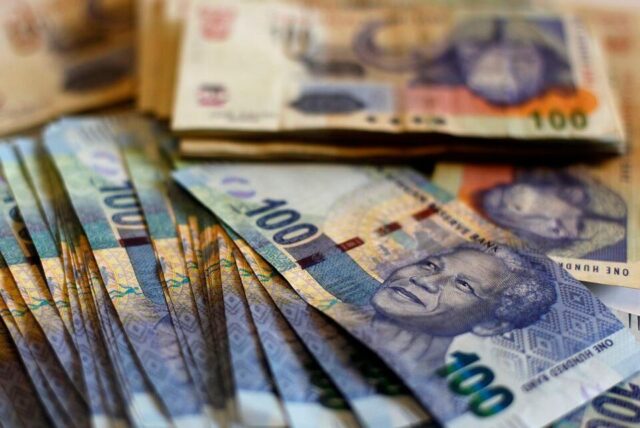MARKETS ON MONDAY: We expect that the rand, global and domestic equity markets, and bond rates will remain volatile due to expectations of another rate hike in South Africa and a possible hawkish stance of the members of the Fed, writes Chris Harmse.
THE RAND last week remained under pressure due to geopolitical issues and concerns that the US Federal Reserve would increase interest rates further next month.
Due to higher prices for commodities and the effect on double listed shares (like Naspers) that gained from the weaker rand, equity prices on the JSE ended the week once again positive. The rand depreciated forty cents against the dollar over the past five days to close Friday at R19.40 to the dollar.
On the JSE, the All Share index gained 1.53% over the past seven trading days and is still 6.32% higher for the year-to-date. The Industrial 25 index increased by 2.03% over the past seven trading days and improved by more than 20.0% since the beginning of the year.
International journalists, now not only concentrate on the saga around the possible sale of weapons by South Africa to Russia, but also on other issues of maladministration and corruption in South Africa, like cable theft, sabotage at Eskom, elevated levels of unemployment, etc.
UK-broadcaster BBC last Thursday reported: “With Stage 8 load shedding expected this winter, consumers will have up to 16 hours of no electricity every single day. Stage 8 power cuts would require up to 8,000MW to be shed from the national grid. This is likely to cause more businesses to shut down, further job losses and a high possibility of civil unrest.”
US newspaper The New York Times last week Wednesday reported: “South Africa’s largest city is now on its sixth mayor in 22 months. While politicians argue over power, residents struggle with dry taps, heaps of garbage and dilapidated buildings.”
These reports came in thick and thin last week.
In the US, stocks moved nervously and volatile amid a sell-off in bank shares, as well negative sentiment on the concern that US lawmakers are struggling to reach a deal to prevent a default on US debt.
Traders also are indifferent on a Federal Reserve rate hike in June as Jerome Powell in his speech last week hinted that a pause is near.
The Dow Jones ended the week marginally higher with 0.3% and now only had gained 0.8% since the beginning of the year. The S&P500 ended the week positive gaining 1.58% on the possibility of a pause in US interest rates. The index is 9.5% for the year-to date and supports the Fed’s opinion that the US may not move into a recession.
This coming week investors and analysts on South African markets await the release by Statistics South Africa (StatsSA) of the consumer inflation rate (CPI) for April 2023. It is expected that the increase in the CPI was 7.1%, the same as the March 2023 number. If the rate is higher, a further hike in the repo rate by the SA Reserve Bank’s Monetary Policy Committee at their meeting that starts on Tuesday becomes a reality.
Expectations of a hike of at least 0.25% are already priced in. The expected increase will push the prime interest rate up to 11.5% from June 1. StatsSA will also release the latest producer price inflation (PPI) on Thursday. It is expected that prices at the factory gate increased in April at a lower rate of 10.2% against the rate of 10.6% recorded for March 2023.
On international markets the dominant economic indicator that will be released on Thursday of the US Federal Reserve’s Federal Open Market Committee minutes of the previous meeting. Analysts and economists will analyse the minutes for any clue of the climate of the Fed towards either a pause soon or yet the possibility of another hike.
On Thursday, the US will announce the second estimate of its economic growth rate for quarter one 2023. It is expected that the real growth in gross domestic product was 1.1% and still not in recession territory. On Friday it is the turn for US data on durable goods orders, personal income, and spending. The UK will release its retail sales for April on Friday.
We expect that the rand, global and domestic equity markets, and bond rates will remain volatile due to expectations of another rate hike in South Africa and a possible hawkish stance of the members of the Fed demonstrated in the minutes of their last meeting.
* Chris Harmse is the consulting economist of Sequoia Capital Management.
– BUSINESS REPORT








